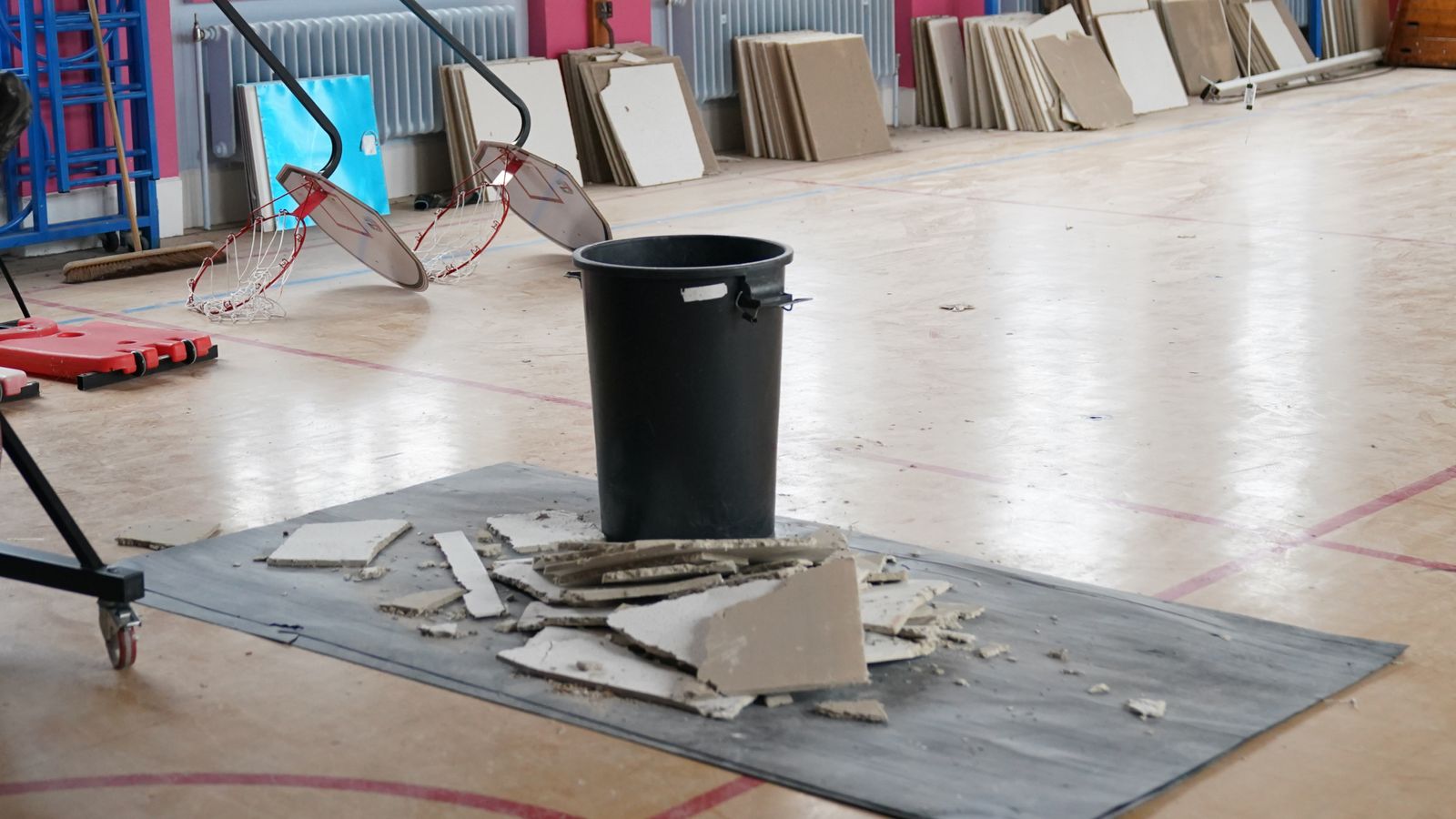Sunak gave less funding than requested to fix crumbling schools, minister admits


The Treasury only gave funding to rebuild 50 crumbling schools a year after a bid was put in for 200 while Rishi Sunak was chancellor, a minister has admitted.
Nick Gibb said it was “simply not true” to say the prime minister oversaw budget cuts to a rebuilding programme in 2021, telling Sky News that 50 a year was in line with previous austerity years.
However, the schools minister admitted a request by the Department for Education (DfE) was put in to fund the rebuilding of more than double that amount.
Politics Live: Ministers were warned ‘180 times about school buildings’
He said: “We put in a bid for 200, but what Rishi agreed to was to continue the rebuilding programme with 50 a year, consistent with what we’d been doing since we came into office.
“Of course we put in a bid for 200, but of course the Treasury then has to compare that with all the other priorities from right across Whitehall, from the health service, defence, and so on.”
Labour’s Jonathan Ashworth, who was made shadow paymaster general in Monday’s reshuffle, said it was “the most startling fact of the day”.
He told Sky News: “You’ve got the schools minister to admit that they asked for more investment to fix schools and Rishi Sunak’s cut it back, so the buck stops with him. Schools have had to close and roofs are being held up with steel girders.”
The government is facing growing pressure over its handling of the reinforced autoclaved aerated concrete (RAAC) crisis after issuing a last-minute order for over 100 school buildings to close where the collapse-prone material is present.
Advertisement
The issue has caused disruption for thousands of pupils just as they go back to the classroom following the summer holidays.
On Monday, a former top civil servant at the DfE accused Mr Sunak of slashing funding for a rebuilding programme and ignoring warnings about the extent of the problems caused by RAAC.
Jonathan Slater, who was permanent secretary at DfE between May 2016 and August 2020, said civil servants recommended between 300 to 400 schools needed repairs each year and the department then requested Treasury funding to cover 200 a year.
He claimed funding was initially agreed for 100 a year “but the actual decision made in 2021 was to halve down from 100 a year to 50 year”.
Read More:
Education sec defends going on holiday
Education sec compared to Thick Of It character – but is that fair?
Speaking to BBC’s Radio Four programme, he added that it was “frustrating” because they had given the Treasury good data and “we weren’t just saying there was a significant risk of fatality, we were saying there is a critical risk to life”.
However, Mr Sunak hit back that it was “completely and utterly wrong” to characterise his spending decision on the schools rebuilding programme as a budget cut.
He said one of the first things he did as chancellor in his first spending review in 2020 “was to announce a new 10-year school rebuilding programme for 500 schools”.
He said that equated to about 50 schools a year that will be refurbished or rebuilt and “if you look at what we have been doing over the previous decade, that’s completely in line with what we have always done”.
Govt ‘most proactive in the world’
Criticism has continued after the education secretary, Gillian Keegan, was forced to apologise on Monday for a sweary outburst where she claimed others had failed to tackle the crisis.
Please use Chrome browser for a more accessible video player

2:13
What is the concrete crisis?
Ministers have admitted that hundreds more schools may be impacted by RAAC – which was widely used in buildings from the 1950s to the mid-1990s.
There have been warnings about the material for many years, but the government said “new evidence” emerged over the summer about the dangers it poses – prompting them to order schools to close areas where it is present.
Mr Gibb insisted the government was doing more than anyone in the world after the head of the National Audit Office (NAO) accused ministers of a “sticking plaster approach”.
Writing in the Times on Tuesday, NAO chief Gareth Davies suggested that there had not been sufficient focus on “unflashy but essential tasks” such as maintaining public buildings that have faced “underinvestment”.
But Mr Gibb told Sky News: “I don’t accept that.
“We are taking more proactive action on that than any other government in the world.
“We are the government that put out the warning notice in 2018. We are the government that sent questionnaires to every responsible body asking them to tell us about RAAC in their schools.“